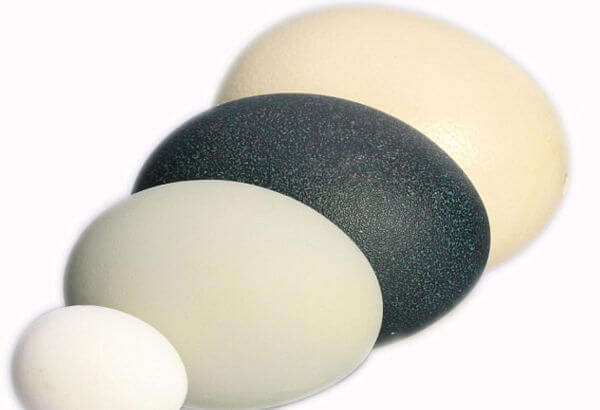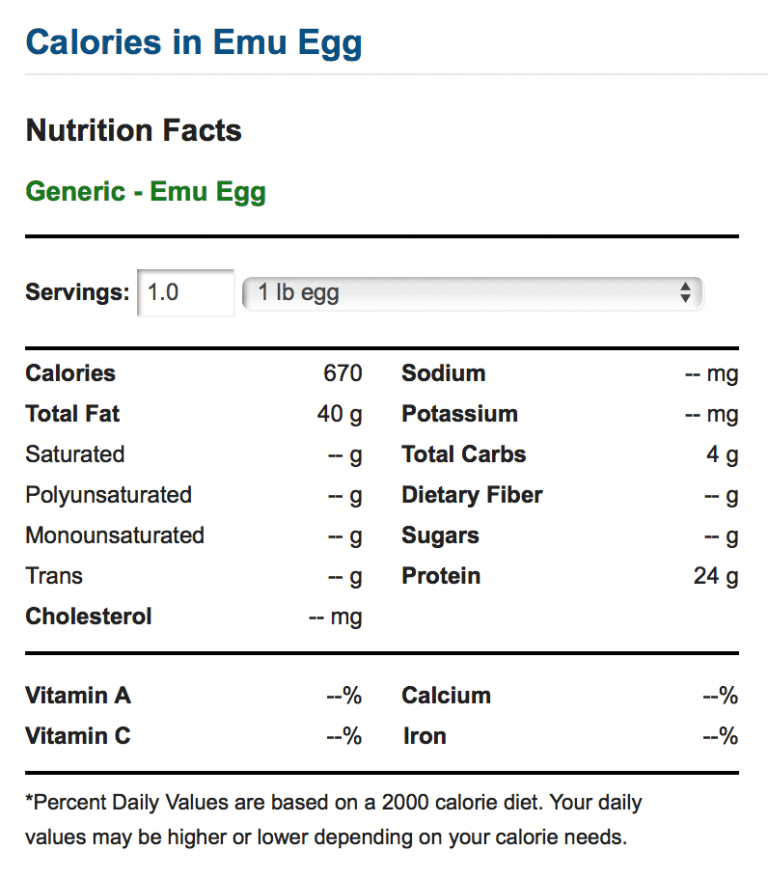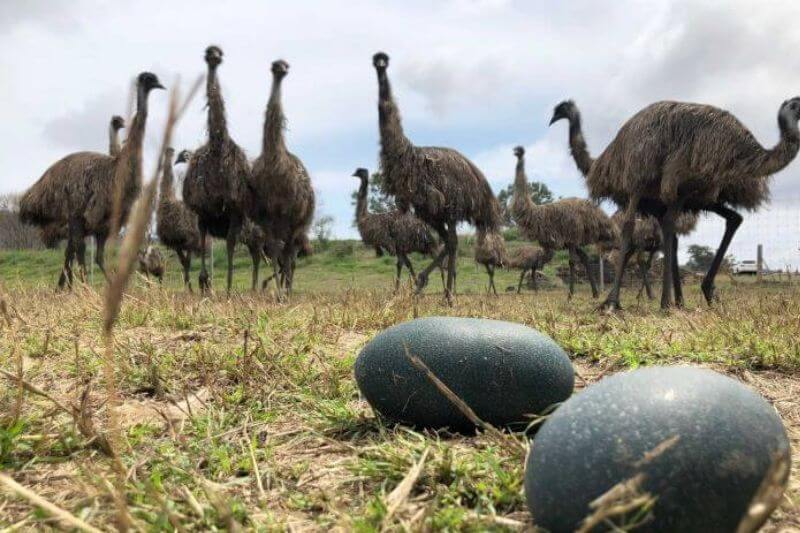Emu eggs are apparently in hot demand by high end restaurants and bodybuilders, according to a recent article by ABC Australia.
My natural reaction was, “Right. Here we go. Another overhyped “superfood.”
But what the heck are emu eggs anyway? Are they nutritious? Are they good for you?
Even though I live in Australia where emu farms are common primarily for emu meat, there’s comparatively little information available on emu eggs as a food source.
So the purpose of this article is to provide a basic just-the-facts foundational article (which I’ll update as new information becomes available).
About emu eggs
An emu egg weighs a hefty 400 to 650 grams (14 to 23 ounces or just about 1 to 1.5 lbs) and has an average width and length of 87 mm and 130 mm (3.4 to 5.1 inches), respectively.
They have a uniquely dark green emerald colour due to the presence of the biliverdin pigment in the shell. (reference).
One emu egg is equivalent to about 8 to 12 chicken eggs (depending on individual egg sizes), so unless you’re really packing an appetite, chances are you won’t be able to eat one in a single sitting.

If you’re cooking one at home then “you’re gonna need a bigger frying pan!”
If you’re looking to hard boil one of these eggs, it could take well over an hour!
Nutrition: are emu eggs a superfood?
There really isn’t a lot of good quality nutrition information available on emu eggs yet, but here are a few bits and pieces I was able to cobble together from a few sources:
- Emu eggs are rich in MUFA and PUFA than hen eggs.
- Emu eggs contain 31% saturated and 68% unsaturated fats.
- Emu eggs contain all eight of the essential amino acids (as do hen eggs).
- The yolk is paler than a hen’s egg and accounts for about 45% of the egg.
While I don’t have any love affair with MyFitnessPal, this nutrition label (below) gives a generic rundown of the egg’s macronutrient composition.
However, upon closer inspection, I’m questioning whether or not these numbers are correct.
You can see that the total calories is 670, but if you convert the macronutrients in grams to calories, they do not equal 670.
For example:
- Fat: 40g x 9 calories/gram = 360 calories;
- Protein: 24g x 4 calories per gram = 96 calories;
- Carbohydrate: 4g x 4 calories/gram = 16 calories.
Therefore, 360 + 96 + 16 = 472 calories which is under by 200 calories.

Chemical composition
In a 2014 paper by Warale and colleagues, the chemical composition of an emu egg was:
- Fat: 35.84%
- Protein: 15.54%
- Carbohydrate: 0.63%
- Ash (minerals): 1.78%
- Dry matter: 51.14%
How much do they cost?
Depending on where you buy it (i.e., from the source or an online middle man), an emu egg can set you back $25 to $50 per egg.
Emu eggs as a super food?
As for whether or not emu eggs are a superfood, just remember that there is no such thing as a superfood, just super marketing.
Sure, they’re likely as nutritious as a standard chicken egg, but it’s important to remember that we don’t live on eggs alone.
A varied diet that contains lots of fruits, veggies, and whole grains also gives us valuable fibre and health-promoting phytonutrients that you just can’t get from any egg.
And given the price tag on a single emu egg, they’re really not good value for money unless you’re buying it for the novelty factor.
What do they taste like?
In an interview with ABC Australia, emu farmer Stephan Schmidt said because the emus were farmed and fed grain, the eggs taste very similar to chicken eggs.
“Don’t worry about comparing it to a duck egg, you compare it to a chook egg, except that it is a free-range emu, we feed them similar to a chook,” he said.
“I think it’s a little bit different to a wild egg, a wild emu would have a different flavour, but the farmed emu is very much like a chook egg, a free-range chook egg.”
A question of availability
If emu eggs take off in popularity, then availability may become an issue.
Unlike chicken eggs which are available in quantity all year, female emus only lay their eggs in the winter and, on average, can only lay one egg every three days (reference).
Take home message
Emu eggs may be a hot headline right now, but there are questions of whether or not they’re a superfood above and beyond what can be found in a standard hen egg.
Bottom line: eat a varied diet comprised of healthy foods which provides all-around balance nutrition.
Given the hefty price tag for a single egg, they are likely cost prohibitive and impractical for most people, but may be an interesting novelty meal once in a while.
